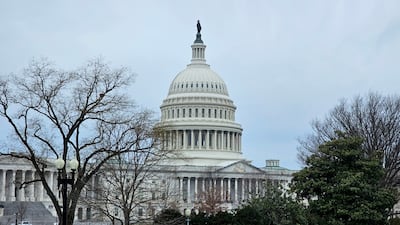
Medicines Australia has expressed skepticism over the Pharmaceutical Benefits Advisory Committee’s claim that in March 2025 it will only be able to assess 32 submissions from companies that want to get their drugs subsidized under the Pharmaceutical Benefits Scheme.

The move towards greater regulatory collaboration is a positive step for gene therapy developers, Astellas’ gene therapy strategy lead Richard Wilson says – adding, however, that pharma still needed to understand the Asian markets better.

Judges on the Third Circuit panel in the BMS and JNJ IRA cases seemed sympathetic to industry’s concerns about the government using the term “maximum fair price” in the IRA’s Medicare drug price negotiation program.

Along with the much heralded guidance requiring coverage of OTC birth control, the Biden Administration also required insurers to cover pre-exposure prophylaxis (PrEP) for prevention of HIV.

Some of the industry’s biggest challenges, and potential solutions, were hot topics at the BioFuture conference in New York.

The European Commission has now adopted the third implementing act for the Health Technology Assessment Regulation. This sets out rules for managing conflicts of interest of anyone involved in joint clinical assessments or joint scientific consultations under the regulation.

A proposed rule requiring US insurers to cover non-prescription birth control would also broaden the existing mandate to cover prescription contraceptives at no cost for beneficiaries.

European cross-country HTA collaborations have much to learn from each other to keep drug prices from rising unfairly, Nordic health technology assessment experts say, adding that talks on collaboration are also ongoing with HTA bodies outside the continent.

The leading supplier of repackaged off-label Avastin for ophthalmic uses is discontinuing the product. Is this the beginning of the end for a relatively cheap wet AMD treatment?

Generics of the schizophrenia treatment Latuda generated more than $4bn in savings a year after their 2022 approval, according to an FDA study.

Drug discount program reform would have the best chance of enactment if Republicans gain control of both the House and Senate and former president Trump is re-elected.

The landmark drug pricing reforms from the Inflation Reduction Act are starting to take full effect – and it turns out that the impact may not be as dramatic as originally projected based on updated analyses from the US Congressional Budget Office.

The UK’s drug regulator has approved Eli Lilly’s early Alzheimer’s drug Kisunla, but England’s health technology assessment agency NICE said that the product “does not currently demonstrate value” for the National Health Service.

The US Congressional Budget Office acknowledged that weight loss drug coverage could drive long term savings from ancillary health issues, but not enough to offset the cost of the drugs. Expanding Medicare coverage would cost the US Treasury $35 billion over 10 years.

It is time for companies to take part in cross-country health technology assessments and stop asking “what’s in it for me?”

A manufacturer information campaign is increasing awareness about the Inflation Reduction Act provisions easing cost sharing obligations for high-cost drugs in Part D, the insurer said.

With a single drug category and an uncertain political future, the FTC’s legal efforts may gain limited traction. Was focusing on insulin rebating a wisely targeted approach or did the case underemphasize the ‘emotionally more powerful consumer deception issue’?

A court order encompassing funding, drug pricing, clinical trials and overall policy implementation aspects is expected to cause a paradigm shift in the treatment of rare diseases in India. Sarepta, Roche and Sanofi are among the companies that have been part of pricing discussions.

Pink Sheet reporter and editors discuss an emerging pharma strategy to avoid Medicare price negotiations, legal wrangling related to compounding GLP-1 drugs for obesity and diabetes, and the varying opinions of FDA officials on the acceptability of artificial intelligence models that are not fully explainable.

The US Medicaid agency will not require diagnostic codes on prescriptions any time soon after hearing “overwhelming” opposition from stakeholders.